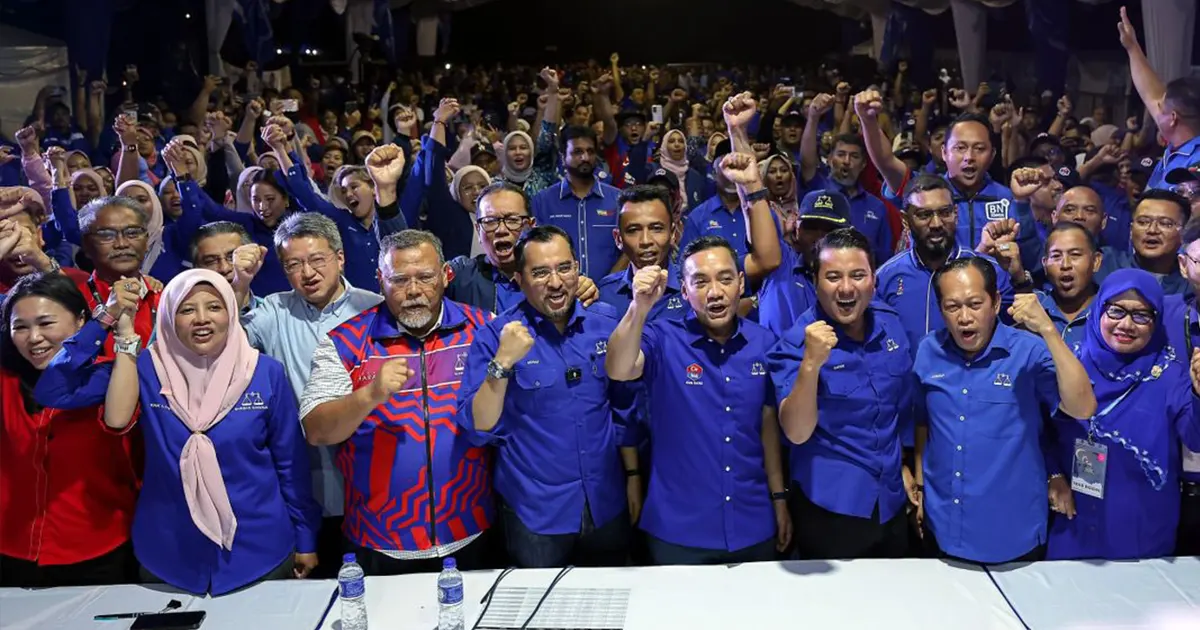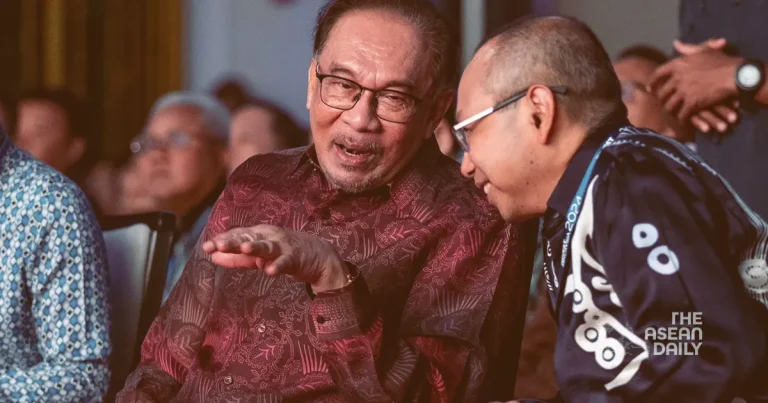1-10-2024 (KUALA LUMPUR) Malaysian Prime Minister Anwar Ibrahim’s coalition government has solidified its position following a resounding victory in a recent by-election, signalling growing public support and increased political stability. The landslide win in Johor’s Mahkota state, secured by the Umno-led Barisan Nasional (BN) coalition in partnership with Anwar’s Pakatan Harapan (PH), has demonstrated the effectiveness of their alliance despite historical rivalries.

The by-election, held on Saturday, saw the ruling coalition triumph over the opposition Perikatan Nasional (PN) by a margin exceeding 20,000 votes. This decisive victory has reinforced the unity government’s grip on power, marking a significant shift in Malaysian politics after decades of antagonism between the coalition partners.
However, the aftermath of the election has not been without controversy. A senior Umno leader, Nur Jazlan Mohamed, stirred the pot by asserting that no single party within the government could claim to be the “backbone” of the ruling coalition, particularly targeting Anwar’s PH. Jazlan went so far as to demand an apology from PH for past allegations and accusations against Umno, highlighting the lingering tensions within the alliance.

Despite these internal frictions, political analysts believe that Anwar has been largely successful in bridging the divide between former adversaries. Dr Syaza Farhana Mohamad Shukri, head of the political science department at the International Islamic University of Malaysia, commented, “Anwar’s strategy has worked. Initially, it was about compromises to work together with his former nemesis. Then he focused mostly on the economy.”
The by-election results suggest that voters, particularly supporters of both BN and PH, have adopted a pragmatic view of the alliance. This pragmatism bodes well for the stability of Anwar’s unity government, although it has come at a cost to his reform agenda.
Critics argue that Anwar has pivoted towards a more conservative stance since taking office, employing tough laws he once criticised to control public discourse and reigniting sensitive issues surrounding race and religion. This shift has disappointed some of his long-time supporters who had hoped for more progressive policies.
However, Anwar’s focus on economic recovery has yielded tangible results. Malaysia’s economy grew by a robust 5.9% in the second quarter of 2023, surpassing expectations. This growth has been attributed to strong domestic spending, investments, and export demand. Additionally, the Malaysian ringgit has staged an impressive rally against the US dollar, gaining 12% in the July-September quarter after hitting a 20-year low in February.
Anwar’s two-pronged strategy of economic revitalisation and political consolidation has been noted by observers. Aziff Azuddin, a research associate with the Kuala Lumpur-based think tank Iman Research, explained, “Anwar’s first two years were seemingly spent clearing any political obstacles. This is necessary for his administration to receive support and operate in the policy space.”
The Prime Minister has also launched an anti-corruption drive, which has implicated several associates of his former mentor-turned-rival, Mahathir Mohamad. While critics allege these actions are politically motivated, Anwar maintains that his commitment to combating corruption has bolstered investor confidence.
Historically, Malaysians have shown a willingness to tolerate authoritarian tendencies in their leaders if accompanied by economic prosperity. As Aziff notes, “The same can be true for Anwar.” This suggests that as long as the economy continues to improve, Anwar’s position may remain secure despite concerns about his shift towards conservatism.




